Image-Guided SRT Compared to Mohs Surgery
Skin Cancer Can Be Cured Without Surgery
For years, Mohs surgery was the standard treatment for people with skin cancer. Now, people with basal or squamous cell skin cancers have Image-Guided SRT—the treatment option that cures skin cancer without surgery.
Learn about 2 skin cancer treatment options
Mohs Surgery
Image-Guided SRT
The skin cancer is cut out of the skin, making a wound and leaving a scar.
Low amounts of X-ray energy are used to kill the cancer cells, which lets healthy skin grow back.
The size and depth of the skin cancer is only known after the cutting starts.
Uses SRT technology with ultrasound images to find, measure, and treat the skin cancer cells and see it shrink over time to be sure the cancer is cured.
Local anesthesia is used to dull the pain prior to cutting.
Anesthesia is not needed.
More than 1 surgery during the day may be needed to remove all the skin cancer.
Fifteen to 20 short treatment sessions (about 15 minutes each) over the course of several weeks.
The surgery leaves wounds, which will need to be cared for by changing bandages, not showering, and not doing normal activities.
There is no bleeding or wounds, so you do not need to skip normal daily activities.
Scarring may need to be fixed with reconstructive surgery.
There is no scarring.
Only 1 skin cancer can be treated at a time.
More than 1 skin cancer can be treated at a time.
Mohs surgery works 96% to 98% of the time.
Image-Guided SRT cures over 99% of basal and squamous cell skin cancers.
Mohs Surgery
The skin cancer is cut out of the skin, making a wound and leaving a scar.
Image-Guided SRT
Low amounts of X-ray energy are used to kill the cancer cells, which lets healthy skin grow back.
Mohs Surgery
The size and depth of the skin cancer is only known after the cutting starts.
Image-Guided SRT
Uses SRT technology with ultrasound images to find, measure, and treat the skin cancer cells and see it shrink over time to be sure the cancer is cured.
Mohs Surgery
Local anesthesia is used to dull the pain prior to cutting.
Image-Guided SRT
Anesthesia is not needed.
Mohs Surgery
More than 1 surgery during the day may be needed to remove all the skin cancer.
Image-Guided SRT
Fifteen to 20 short treatment sessions (about 15 minutes each) over the course of several weeks.
Mohs Surgery
The surgery leaves wounds, which will need to be cared for by changing bandages, not showering, and not doing normal activities.
Image-Guided SRT
There is no bleeding or wounds, so you do not need to skip normal daily activities.
Mohs Surgery
Scarring may need to be fixed with reconstructive surgery.
Image-Guided SRT
There is no scarring.
Mohs Surgery
Only 1 skin cancer can be treated at a time.
Image-Guided SRT
More than 1 skin cancer can be treated at a time.
Mohs Surgery
Mohs surgery works 96% to 98% of the time.
Image-Guided SRT
Image-Guided SRT cures over 99% of basal and squamous cell skin cancers.
See the difference between Mohs surgery and Image-Guided SRT
Many people do not realize the wound care and recovery time with Mohs surgery. One in 3 people need reconstructive surgery after Mohs, which takes months or longer to heal. Image-Guided SRT is different. There is no cutting, wounds, scarring, or limits to your daily activities during treatment.
Image-Guided SRT results
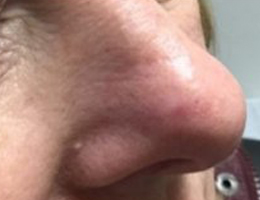
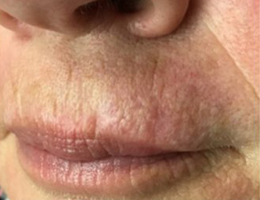
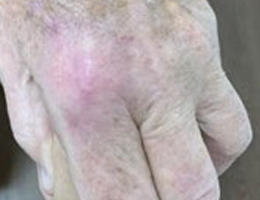
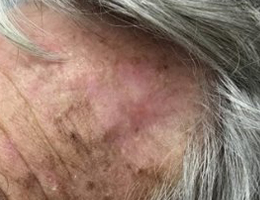
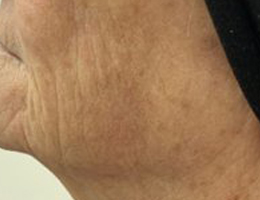
What is important to you in a skin cancer treatment?
Image-Guided SRT may be the right option if you:
- Fear surgery
- Cannot have surgery because of other health problems
- Have more than one skin cancers that need to be treated
- Do not want the side effects of surgery (bleeding, scarring, pain, reconstructive surgery)
- Care about how your skin looks after treatment
- Want to see the cancer shrink and know treatment is working
Ask yourself these questions to help think about which treatment may be right for you


Hear how others describe having Image-Guided SRT or Mohs surgery
Everyone Deserves a Surgery-Free Treatment Option
Participate in change. Do not let radiation oncologists limit your treatment options to protect their income. Sign a FREE petition to tell Medicare and health insurers that you expect them to CONTINUE COVERING an FDA-cleared, less invasive treatment option.